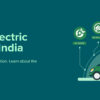Since the industrial revolution and increasing global population, energy demands have been increasing, with petroleum and natural gas being the primary sources of energy. Hydrogen, as clean energy, gained momentum as a permanent solution to environmental problems caused by fossil fuel consumption. In 1974, a conference in Miami Beach introduced the Hydrogen Energy System (HES) as a permanent solution to depletion and global environmental problems. R&D activities were initiated worldwide to develop technologies for the HES, which took 25 years. Industries like the USA, Germany, and Japan have started using hydrogen fuel cells for electricity and heating, replacing battery-powered forklifts in warehouses, and developing hydrogen-powered cars, locomotives, trams, and passenger planes. Hydrogen and electricity are considered opposite sides of the same energy.
Hydrogen is a renewable fuel that can be produced and converted into electricity at high efficiencies, using water as a primary material. It is easily stored in gaseous, liquid, or metal hydrides forms, and can be transported over long distances. Hydrogen can be converted into other forms of energy efficiently, and when produced from water using renewable energies, it is environmentally friendly. Hydrogen can be produced using various methods, including coal, oil gasification, partial oxidation, natural gas steam reforming, pyrolysis, plasma reforming, solar energy electrolysis, photolytic splitting, thermal splitting, nuclear electrolysis, wind/hydrogen/water/geo thermal electrolysis, and bio mass fermentation/gasification/pyrolysis. However, there is no universally accepted standard color coding for hydrogen, and policymakers should develop a universally accepted standard color coding based on quantified greenhouse gas emissions from each method of generating hydrogen.
Hydrogen In Fuel Cell Vehicles (FCVs)
In 2008, experts predicted that hydrogen would have a significant impact on gasoline consumption and global warming, but it is currently considered the worst vehicle fuel. Hydrogen vehicles are only 38% efficient, while battery electric vehicles are 80%-95% efficient. CleanTechnica’s 2021 assessment found that most hydrogen production is polluting grey hydrogen, and delivering hydrogen would require expensive infrastructure. The advantages of fuel cell vehicles, such as longer range and fast fueling times, are being eroded by improving battery and charging technology.



Leave a reply